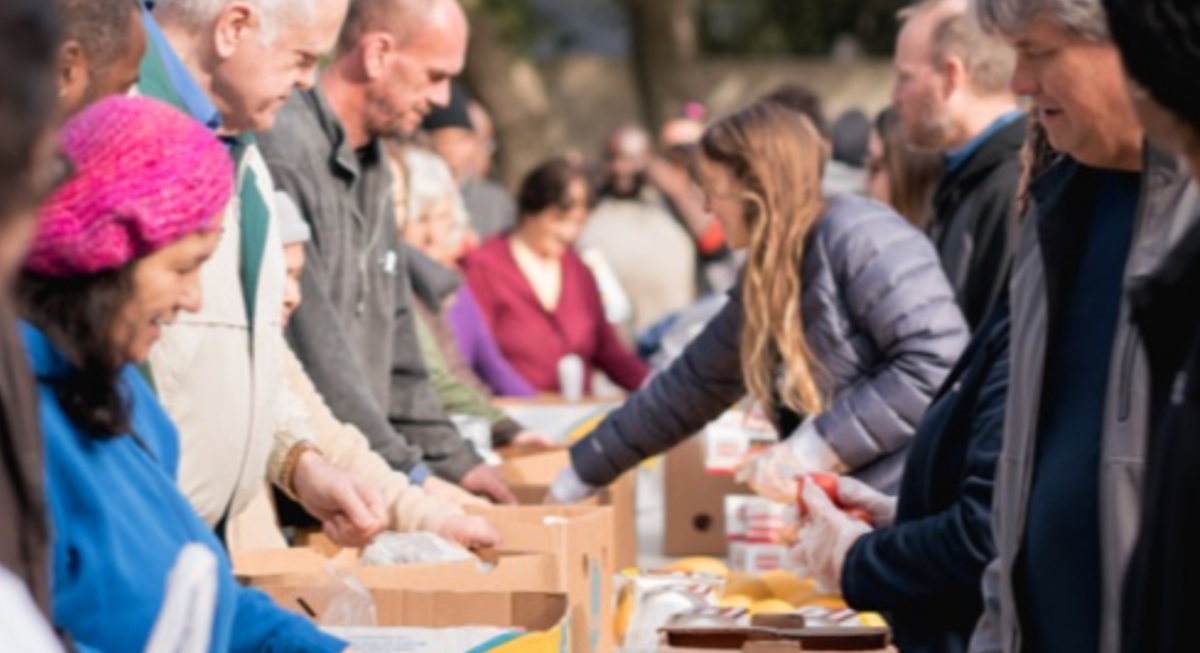Feed Your Family or Fund the Courts? The Link Between Fines, Fees, and Food Insecurity
By Sarah Couture, FFJC Florida State Director
Food insecurity can affect almost anyone. And while we tend to think of “going hungry” as something that only happens after extreme misfortune or poverty, the reality is many working people are one unexpected tragedy or bad day away from needing help.
In my work at the Fines and Fees Justice Center (FFJC), that “bad day” often comes in the form of a ticket, fine or court fee that a person simply cannot afford. Fines, as many of us have experienced, are imposed when you violate the law — the classic example is a parking ticket. Fees, however, are costs imposed as you move through the justice system, regardless of guilt or innocence. Fees can be imposed for anything from a $25 late fee to a $50 application fee for your public defender — and can easily add up to thousands of dollars.
The only reason fees exist is to generate revenue for courts and other government services.
What happens when you can’t afford to pay these fines or fees? You’re hit with more debt, more fees, and increasingly severe punishments, such as driver’s license suspension or incarceration. Floridians struggling with court debt are then forced to make an impossible choice:
Do you buy food and basic necessities — or risk arrest, jail time, and the loss of your license?
Many choose to give up food. Everyday at FFJC, I hear stories from hard-working Floridians that are running out of options to pay off court debt. One man contacted me after his license was suspended for unpaid court debt:
“I can’t get a job because of not having a license…[and I] have been living without power and water for 3 months. I’m barely getting by as it is on food…all because my license was taken.”
Adults aren’t the only ones who are being crushed by court debt. Florida assesses these same revenue-raising fees on children in the juvenile justice system. In the case of juvenile fees, both parents and children suffer the lifelong consequences of these fees, despite clear evidence that most of this debt is uncollectible.
Before FFJC, I worked at Feeding Tampa Bay where I helped provide food to over a million families in West central Florida. I saw first-hand how involvement in the criminal justice system — even for the smallest of infractions — could affect your ability to secure food. A survey from Alabama Appleseed found that 80% of people with court debt cut back on basic needs like food, medical bills, and more just to pay down their debt. Almost two-thirds of respondents received money or food assistance from a faith-based charity or church that they would not have had to request if they weren’t paying court debt.
As Matt Spence, Chief Programs Officer, Feeding Tampa Bay notes, “the food relief system exists as a supplemental support for individuals and families in crisis and is not meant to be a permanent solution. Helping our neighbors find stability is a challenge that takes many partners working together to remove barriers.”
Programs like Feeding Tampa Bay serve a vital purpose in our community but they cannot solve the issues of food insecurity alone. Florida lawmakers also have a responsibility to address one of the root causes of food insecurity: a justice system that has turned poverty into a crime.
Together with Feeding Tampa Bay, the Fines and Fees Justice Center is working to help people whose lives have been devastated by the criminalization of poverty.
To learn more, check out my interview on Feeding Tampa Bay’s Stick A Fork In It Podcast, where I discuss my journey from Feeding Tampa Bay to FFJC — and what you need to know about fines, fees and Florida’s future.
You can also learn more about our work to end unjust fines and fees by signing up for FFJC’s monthly newsletter and following us on Twitter and Facebook.
